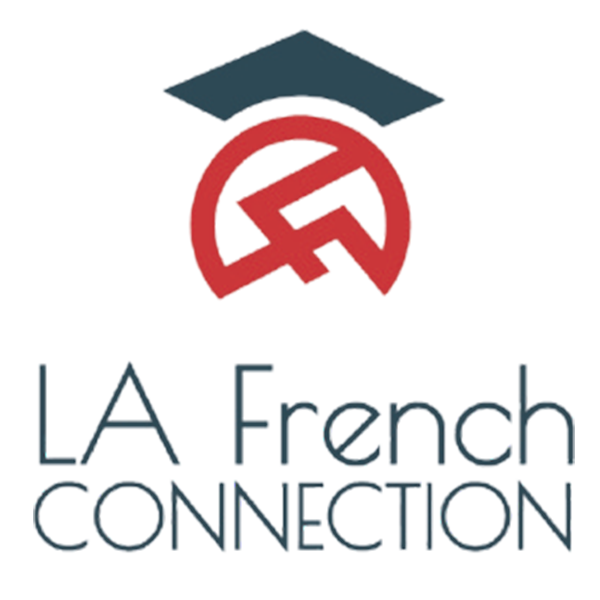What Is the TEF Canada Exam and Who Should Take It

The TEF Canada exam is an official French proficiency test recognized by Immigration, Refugees and Citizenship Canada (IRCC) for permanent residency applications. It evaluates four key language skills: listening, speaking, reading, and writing. A strong score can give applicants +50 additional CRS points in Canada’s Express Entry system, significantly improving their chances of receiving an Invitation to Apply (ITA).
Beyond immigration benefits, French language skills open doors to high-paying jobs in India and abroad, particularly in international business, diplomacy, tourism, and education. For students, French proficiency supports academic goals, especially for those planning to study in French-speaking countries or even the UK, where bilingualism is valued.
Who Should Take the TEF Canada Exam?
1. Canadian PR Applicants Needing Extra Points
The TEF Canada exam is ideal for Express Entry candidates looking to maximize their CRS score. Even intermediate French (CLB 5-7) can earn +25 to +50 points, while advanced proficiency (CLB 9+) provides a bigger boost. Combined with English test scores, bilingual applicants gain a competitive edge.
2. Professionals Seeking Global Career Growth
French is a top business language worldwide, and fluency can lead to lucrative opportunities in:
- Multinational corporations (especially in Canada, Europe, and Africa)
- BPO/KPO sectors (French-speaking customer support roles pay 30-50% more)
- Diplomacy, NGOs, and international trade
- Aviation, hospitality, and luxury retail
Many Indian professionals use French to qualify for work visas in Canada, France, and Switzerland, where bilingual employees are in high demand.
3. Students Planning to Study Abroad
French proficiency improves admission chances at top universities in:
- Canada (Quebec universities often prioritize French speakers)
- France, Belgium, and Switzerland (where tuition is lower for francophones)
- The UK (prestigious schools like Oxford and Cambridge value second languages)
Some institutions offer scholarships or fast-track visas for French-speaking students.
4. Language Enthusiasts & Future Migrants
Even if you’re not applying for PR immediately, learning French early prepares you for future opportunities in Canada or other French-speaking regions.
How to Crack TEF Canada (Alongside TCF, DELF, TEFAQ)
To succeed in the TEF Canada exam:
1. Understand the Test Structure
- Listening (40 min): Multiple-choice questions on conversations and announcements
- Reading (60 min): Comprehension of articles, ads, and official texts
- Writing (60 min): Formal and informal writing tasks (emails, essays)
- Speaking (15 min): Face-to-face discussion on given topics
2. Use Authentic Study Materials
- Official TEF Canada preparation books
- Online courses (Alliance Française, TV5Monde, FluentU)
- Mobile apps (Duolingo, Babbel, Memrise) for daily practice
3. Take Mock Tests Under Real Exam Conditions
- Simulate the test environment with timed practice exams
- Analyze mistakes and focus on weak areas
4. Immerse Yourself in French Daily
- Watch French movies/news (Netflix, RFI, France 24)
- Listen to podcasts (Coffee Break French, InnerFrench)
- Read Le Monde, BBC Afrique, or children’s books for beginners
- Practice speaking with language partners (Tandem, HelloTalk)

Why French Boosts Your Career & Academics
1. Higher Salaries in India & Abroad
- French-speaking roles in IT, customer service, and tourism pay 20-50% more than monolingual positions.
- In Canada, bilingual employees earn 10-15% higher salaries on average.
2. Easier PR & Work Visa Approvals
- Canada’s Francophone Mobility Program fast-tracks work permits for French speakers.
- France offers talent visas for skilled professionals with B2/C1 French.
3. Academic Advantages
- Smoother admissions to European universities.
- Scholarships like Eiffel Excellence (France) or Canadian Francophone Scholarships.
Final Tips for TEF Canada Success
- Start early (3-6 months of preparation is ideal).
- Focus on weak skills (e.g., if writing is tough, practice emails daily).
- Learn Quebec French nuances (some vocabulary differs from European French).
- Stay consistent—even 30 minutes daily helps.
Conclusion
The TEF Canada exam is a powerful tool for immigration, career growth, and education. Whether you need +50 PR points, better job prospects, or academic opportunities, mastering French can transform your future.
FAQS
1. How long is the TEF Canada score valid for immigration?
The TEF Canada results are valid for 2 years from your test date for Canadian immigration purposes. IRCC requires your scores to be valid when you submit your PR application and when they process it. Always check current IRCC rules as policies may change.
2. What’s the minimum TEF score needed for Express Entry points?
You need CLB 5 (TEF Canada: 181-225 points) to qualify for +25 CRS points. For the full +50 bonus points, aim for CLB 7 (TEF Canada: 310-348 points). Higher scores (CLB 9+) maximize your CRS advantage in competitive draws.
3. Can I retake only one section of the TEF Canada exam?
No, you must retake all four sections (Listening, Speaking, Reading, Writing) each time. Your new scores completely replace previous results. Schedule your retake after thorough preparation – most candidates improve after 3+ months of targeted practice.
4. How does TEF Canada differ from TCF or DELF?
TEF Canada is IRCC-approved for immigration, while TCF Canada serves the same purpose. DELF is academically focused and lifelong valid, but doesn’t grant Express Entry points. TEF Canada emphasizes real-world communication with Quebec French elements, unlike DELF’s France-centric content.
